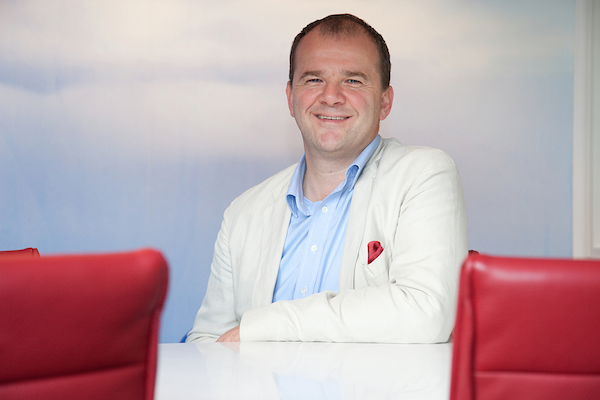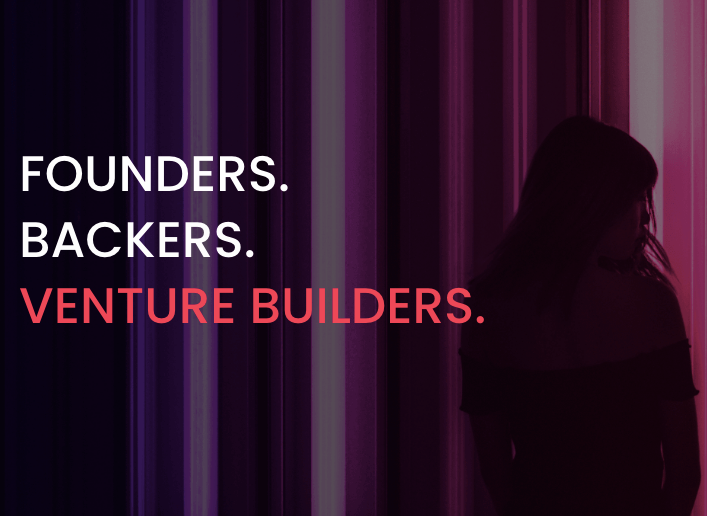
In “How I invest” we interview top Fundsup investors about their investing style.
In this week’s edition of How I Invest, I interviewed Marc Wesselink – a seasoned entrepreneur and early-stage investor. Everyone seems to know Marc and Marc seems to know everyone. But Marc rarely gives interviews that put the spotlight on himself. In this How I Invest edition, Marc talks openly and straightforwardly about his investments, his (life) mission, his learnings, and how he got where he is today.
The red line throughout his career has always been about connecting SME’s to the Internet. A very noble goal in my view. Enjoy this insightful read!
Read the Dutch version on Emerce.
Hi Marc, can you tell us a little bit about yourself?
I was born in Twente in The Netherlands, raised in an entrepreneurial family. This means I was confronted early with entrepreneurship. My father advised me to not become an entrepreneur because he experienced a lot of hardship throughout his career. I didn’t listen and set up my first company during my studies in Utrecht. I found a way to efficiently run a company in business healthcare, but also helped a few other founders along the way. This is when I knew I’d be good at helping others. From there I started more companies together with other entrepreneurs. I even saw a pattern in it, as startup founders are always fighting about similar things throughout the different stages of entrepreneurship. That’s why I started to focus on that and today I spend most of my time helping other entrepreneurs accelerate by optimising efficiency and succeed.
In total I set up 20 projects that resulted in 12 companies. In 2012 I was one of the first partners of Startupbootcamp and together we built an international renowned startup accelerator that accelerated over 800 companies. It was also a huge learning school and I saw even more patterns. That led to the start of Venturerock in 2018 where we now actively build ventures around important problems to solve.
We’ve developed a 72 step process from Idea to a full Grown Up company based on my learnings and some popular theories from Steve Blank, Verne Harnish and Sean Ellis. We do this together with a network of investors and corporates to become even more relevant to a startup and we fund them till break-even so they can focus on execution instead of fundraising
Today I join new companies more from an investor standpoint, helping young companies to set up shop. I’m probably what you guys call “smart capital” – being relevant to founders.
“I’ve invested all my assets in startups, except for my house. I want to make my own decisions. “
What’s your investment strategy?
The red line through almost all my efforts is that I connect SMEs to the Internet.
Today my main focus is to prove that a decentralised investment model works better than a centralised investment model. That’s why I’ve mainly invested in platforms that make investing on the basis of the crowd possible, but I’ve also invested in platforms that make investing on the basis of milestones possible.
Through my portfolio companies, SMEs / startups finally get the opportunity to finance themselves without having to work with banks. The overall goal is to make small companies compliant for large corporations without having to hire a compliance officer.
In the next few years there will be a number of companies that will have to shape everything for making decentralized investments for the masses possible, simple and effective. If you can also put this on a marketable asset class you are creating a kind of “SME stock exchange” on steroids.
What’s your motivation to invest in startups?
First and foremost, I firmly believe in entrepreneurship – it’s the fuel that drives real innovation.
Secondly, startup founders still dedicate about 60% of their time to raise capital in the early stages of their company. And too often the funding is spent on the wrong things. On top of that, many first-time founders feel that they’re entrepreneurs, but in reality aren’t (yet). A simple “car wash” system is needed that reduces the (expensive) legal burdens that still comes with each investment. Not just in the Netherlands but throughout Europe. Informal investors ultimately just want the right investment opportunity and they don’t want the hassle of the comlex legal work. This is why in the US nearly all informal investors invest in Delaware entities, because they are standardized and formalized. Europe doesn’t have anything like this yet.
Thirdly, I strongly believe in one Europe and cross-border investments. It’s proven that 97% of informal investors in Europe only invest within their national borders. If we want to bring Europe to the next level, we have to do much better.

Can you name 3 of your investments and how much time you dedicate to each venture?
Sure, here are my 3 most recent investments:
UNL.global (Venturerock has invested from the start and they have now raised €2m external in their last round). UNL is all about proof of location, so that you’re 100% sure someone is or has been at a certain location. Only then you can do real KYC checks that are self-initiated.
Compleye.io (Venturerock has invested €200K in October 2019). To (eventually) get the world of SME’s compliant for the corporate world without sluggish administration delaying growth.
WeVestr.com (January 2020) is going to organise a cross-border legal entity, in which other people can invest. The investment will be released at measurable data points. The team behind VentureRock consists of 4 partners and myself. I dedicate a block of 4 hours per venture per week. Every company is running through my venture program of 72 steps and will receive funding based on the speed & quality of execution.
Where are startups in your total investment plan?
I’ve invested all my assets in startups, except for my house. I want to make my own decisions.
What’s your passion?
That’s simple: Building great technologies to give very large groups of people much better chances in life.
Let me clarify this with my portfolio company UNL as an example. UNL is active in Singapore and we’re opening up shop in Africa. Did you know that the main reason that people in Africa can’t take out a loan is because they can’t show proof of their location? And that this is also the case with insurances? We’re talking about a continent with 3 billion people on it !
If you ask someone in India where they live, they probably say something in the lines of “I live opposite the theatre”. No street name or zip code, because they don’t have one. The problems are diverse, but UNL technology is already making many lives more inclusive and connected.
On a side-note, loads of SMEs have been wiped out by the rise of the Internet, because of a few unicorns. I dislike unicorns and I’d rather invest in 1000 companies investing €5.000.000 per company rather than 1 x 5 billion in a unicorn, where eventually the VCs profit most.
What’s been your biggest screw-up?
You mean, what’s my biggest learning? ;-)
My biggest screw-up aka learning is definitely that you must talk with your (potential) clients from day 0. My first company was called “restaurantzoeker”. I had a website where you could book tables at a restaurant. Remember this was the year 2000. I was trying very hard to sell tables online, while most restaurants didn’t even have an internet connection back then! I assumed that restaurants without an internet connection could “simply” receive a fax. I did not include all stakeholders in the process that I thought was efficient. I spent 1.5 years on this before closing it. 500 restaurant owners joined my service. It eventually became the reason why I invested in the “hapgids” that later become part of Just Eat from Denmark and listed on the London Stock Exchange, but not with me in it.
What’s your biggest success so far?
Each time I successfully helped an entrepreneur to get ahead with creating his or her dream. I’ve had quite a few successes so far!
What are you looking to invest in next?
We’re now looking at what companies we need to set up to further prove our methodology. I think we need two more and then we’re done for the moment. Besides that, we’re always looking for something new with “health” and “smart city” components in it since my next focus will be within those verticals together with corporate partners and private investors who can add value as well
What would you bring to a startup?
My diverse knowledge and experience, never just money. I want to be involved in all my ventures.
Not only can you find relevant matches with investable startups near you through Fundsup, startups can instantly offer you the excitement of their successes when you join their journey.
Yes, investing a bit of money in startups remains risky, but less if you’re involved yourself. It’s all about the package you’d bring to a startup team: knowledge and network are appreciated by teams early on! Search yourself for relevant startup investment opportunities, chat in-app directly with the founders, meet up in real life only after you’re confident enough. Register today for a Fundsup investor account.
Fundsup is the early-stage matchmaking platform for investors and startup founders. It accelerates sustainable innovation by fostering powerful connections.